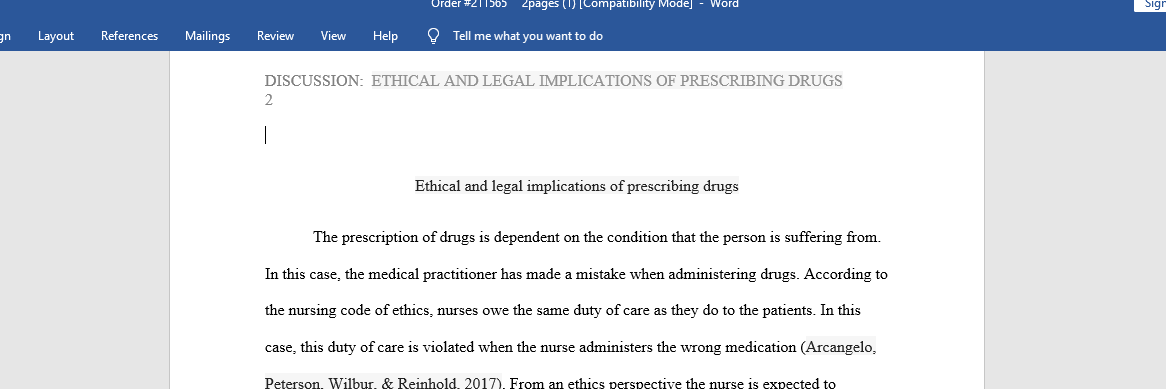Ethical and Legal Implications of Prescribing Drugs
Ethical and Legal Implications of Prescribing Drugs
| Details: |
|---|
| What type of drug should you prescribe based on your patient’s diagnosis? How much of the drug should the patient receive? How often should the drug be administered? When should the drug not be prescribed? Are there individual patient factors that could create complications when taking the drug? Should you be prescribing drugs to this patient?
These are some of the questions you might consider when selecting a treatment plan for a patient. As an advanced practice nurse prescribing drugs, you are held accountable for people’s lives on a daily basis. Patients and their families will often place trust in you because of your position. With this trust comes power and responsibility, as well as an ethical and legal obligation to “do no harm.” It is important that you are aware of current professional, legal, and ethical standards for advanced practice nurses with prescriptive authority. In this Discussion, you explore ethical and legal implications of scenarios and consider how to appropriately respond. Scenario 1:As a nurse practitioner, you prescribe medications for your patients. You make an error when prescribing medication to a 5-year-old patient. Rather than dosing him appropriately, you prescribe a dose suitable for an adult. To prepare: Post an explanation of the ethical and legal implications of the scenario you selected on all stakeholders involved such as the prescriber, pharmacist, patient, and the patient’s family. Describe two strategies that you, as an advanced practice nurse, would use to guide your decision making in this scenario. Required Readings Chapter 1, “Issues for the Practitioner in Drug Therapy” (pp. 3–14) Chapter 59, “The Economics of Pharmacotherapeutics” (pp. 1009-1018) Chapter 60, “Integrative Approaches to Pharmacotherapy—A Look at Complex Cases” (pp. 1021-1036) Sabatino, J.A., Pruchnicki, M.C., Sevin, A.M., Barker, E., & Green, C.G. (2017). Improving prescribing practices: A pharmacist‐led educational intervention for nurse practitioner students. The authors of this article assess the impact of a pharmacist‐led educational intervention on family nurse practitioner (FNP) students’ prescribing skills, perception of preparedness to prescribe, and perception of pharmacist as collaborator. Note: Retrieved from the Walden Library databases. American Nurses Association. (2001). Code of ethics for nurses with interpretive statements. Nursing World. Retrieved from http://www.nursingworld. This article outlines ethical standards in the nursing profession and identifies nine provisions of care that must be adhered to by all nurses. |
Order #211565 2pages (1) Order #211565 2pages
Answer preview for Ethical and Legal Implications of Prescribing Drugs
Access the full answer containing 615 words by clicking the below purchase button

